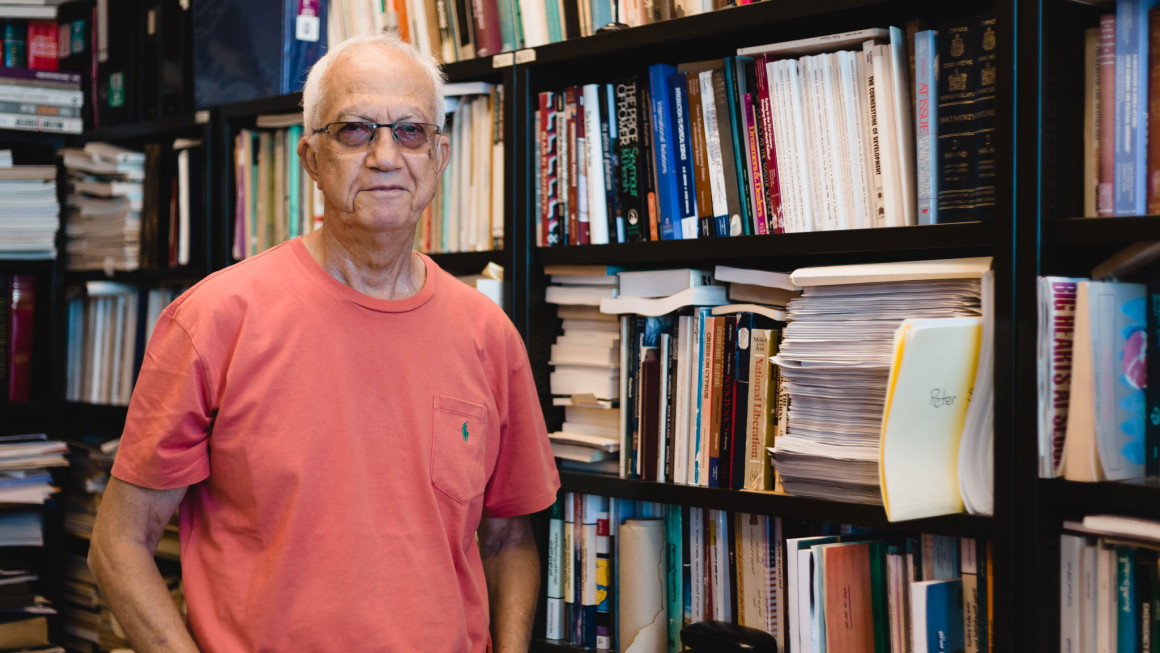
Professor from Cairo teaches summer course on the Middle East
By Brittany Haines (with files from Fabian Mayer), July 30 2015 —
The Middle East is often on the evening news. A summer political science class (POLI 369) at the University of Calgary dissects the complexities of the conflict-riddled region.
Egyptian academic Walid Kazziha teaches the summer version of the course. Kazziha, a professor of political science at the American University of Cairo, has been teaching various courses in Calgary since 1985.
Kazziha lectures at universities across the Middle East and North America and has written or contributed to numerous books, articles and journals. He was also an editor for the recently released book Egypt’s Tahrir Revolution.
Kazziha said he has experienced a few Calgary winters, one of the reasons he only teaches here in the summer.
“The advantage is that I come in the summer and not in the winter,” Kazziha said. “In the winter I’m somewhere warmer than here.”
POLI 369 focuses on the political history of the Middle East and how the rest of the world influences the region. The course concludes with a discussion of contemporary issues.
Kazziha said he can see how U of C students’ views on the Middle East are influenced by the media, Canada’s political parties and lobby groups. He thinks having a professor from the Middle East with a less ideological perspective has an impact on how students think about the issues.
“They mention that it’s refreshing to have a perspective from the region.”
Kazziha said he has seen a shift in students’ views during his decades of teaching at the U of C. A shift mirrored by students in the Middle East according to Kazziha.
“They’ve become much more open-minded They are becoming much more acquainted with the rest of the world rather than being isolated in their own environment,” Kazziha said.
According to Kazziha, some students find the conflict-prone and often undemocratic politics of the Middle East difficult to understand at first.
“Once they learn about the socioeconomic situation, the politics, the history — then they realize that this is a natural outcome of a long process and not a spontaneous thing,” Kazziha said.
Despite teaching at the U of C for nearly three decades, Kazziha said he still learns something new from the students every time he teaches the course.
“It acquaints me regularly with the way the young generation in a western society is moving and are thinking and their perspectives and how they are changing.”
